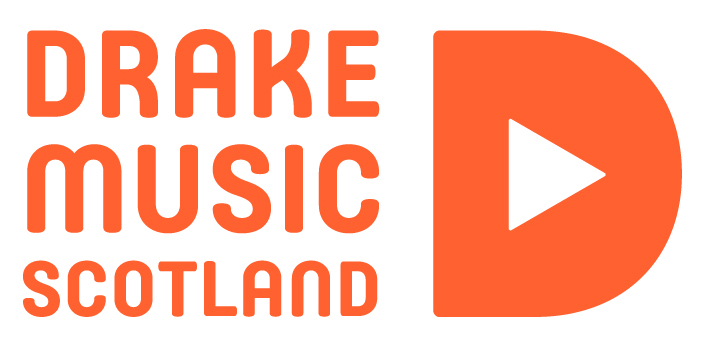From our work with children and adults with all types of disabilities across Scotland, we know the powerful impact music has on the body, mind and spirit! As well as the sheer enjoyment and sense of well being, playing an instrument or singing has well-proven impacts on confidence and communication skills and can reduce the feelings of lack of self esteem and isolation that disabled people often experience.
During this Covid-19 pandemic, disabled people have told us their online music session with us has helped them cope with the stress and isolation of social distancing.
Here are just a few more examples of the difference our work makes to disabled children and adults…
1. Increased confidence and aspirations
Session tutor Katie told us “B began her sessions nervously, not wanting to show her face. We came up with the idea to set her phone up so that I only needed to see her iPad and keyboard. Within a few weeks, B no longer cared if I saw her and answered the Zoom calls with her face on show, feeling upbeat and raring to go!”
2. Reduced isolation and loneliness
“Playing music has given me a purpose for each day. It’s helped me cope. I wouldn’t see other people otherwise.”
E told us “I have learned how to use my computer to do the zoom calls – I have needed to remember my password and user name and learn how zoom works.” She also told us “I also had a problem with my keyboard and had to get a lead – I did that on my own.”
3. Developed communication and social skills
“Max went from being silent and nervous to engaging well with everyone in the group. As the course went on, he could prolong eye contact and developed an increased awareness of others within group situations.”
4. Increased independence
R has severe cerebral palsy and uses a switch (computer mouse-like object) to control music software and play and compose music. Over the year we worked with R on a new switch which responds to pressure and enabled her to play with more dynamics and a larger range of tempi. In addition, R has learned how to use two switches (one for each hand) at the same time which gives her more independence when playing.
5. Access to further education and work experiences
Students of our Accredited Music Technology course (Pathways) have gone on to further education (including full-time study at Perth College and Edinburgh College) and work/ voluntary experience opportunities (including Royal Lyceum Theatre and North Edinburgh Arts Centre).
6. Working as a team
“At first everyone wanted to play the drums so the Drake Musician tried separating the drum-kit out so everyone had one piece of the kit each. Although, the participants were initially happy that everyone could play they soon realised it wasn’t as much fun than playing the whole kit at one time. They learned it was better to take turns in their group.”
“It’s very exciting and the kids have done a great job at working the music out together as a team. It has been a great project for them socially as a lot of the kids did not know each other at all or very well, before this and I feel that they have been empowered by playing instruments and sounding great.”
“I was trying to get L and J to look at each other when they are playing so they don’t get sucked into their own sound which is where the music falls apart as they disengage from the room. I turned the drum kit around so it faced the electric guitar stand and amp so they didn’t have a choice but look in each other’s direction! There was a really lovely moment when they were playing together (exceptionally well) and they clocked each other in the eye and started smiling and laughing whilst playing! There was such joy and connection!”
7. Improved focus and concentration
“Some of the group ran round the room playing everything loudly for 30 seconds before moving quickly to something else. I eventually got them to do a warm up with me and got them to breathe as part of a vocal warm up and these long calm breaths helped them to focus.”
“Some participants were still having difficulty with concentration and listening to each other, but we have started to listen to new songs (although older in genre/style such as Nirvana, Metallica, Slipknot etc.) together and then we are copying them and playing them together. They significantly improved their listening skills and began to understand the difference of playing together in a band to playing solo.”
“Over the weeks, I have seen a huge increase in the length of time (now up to an hour) which Lucy can hold her concentration in each session.”

